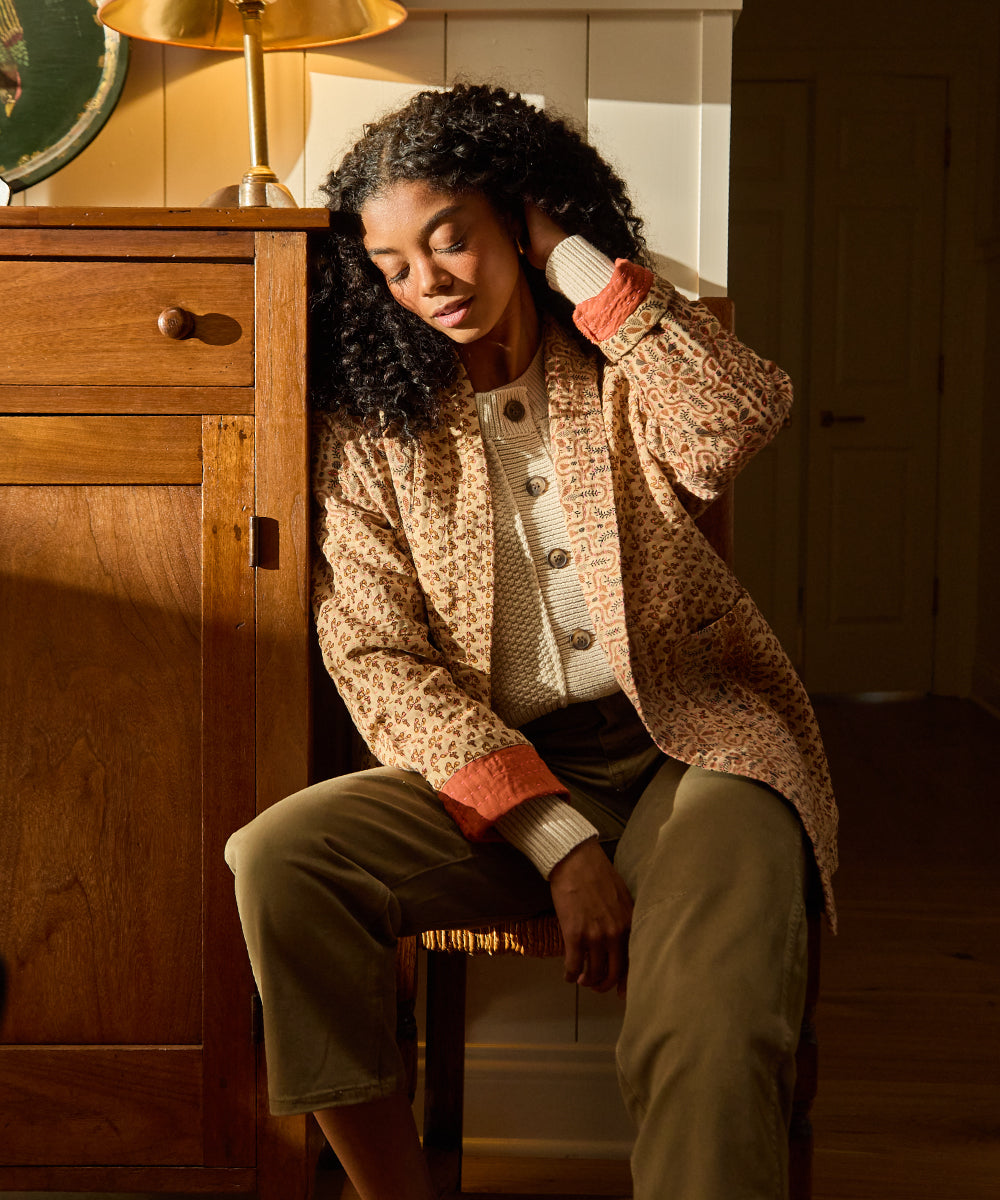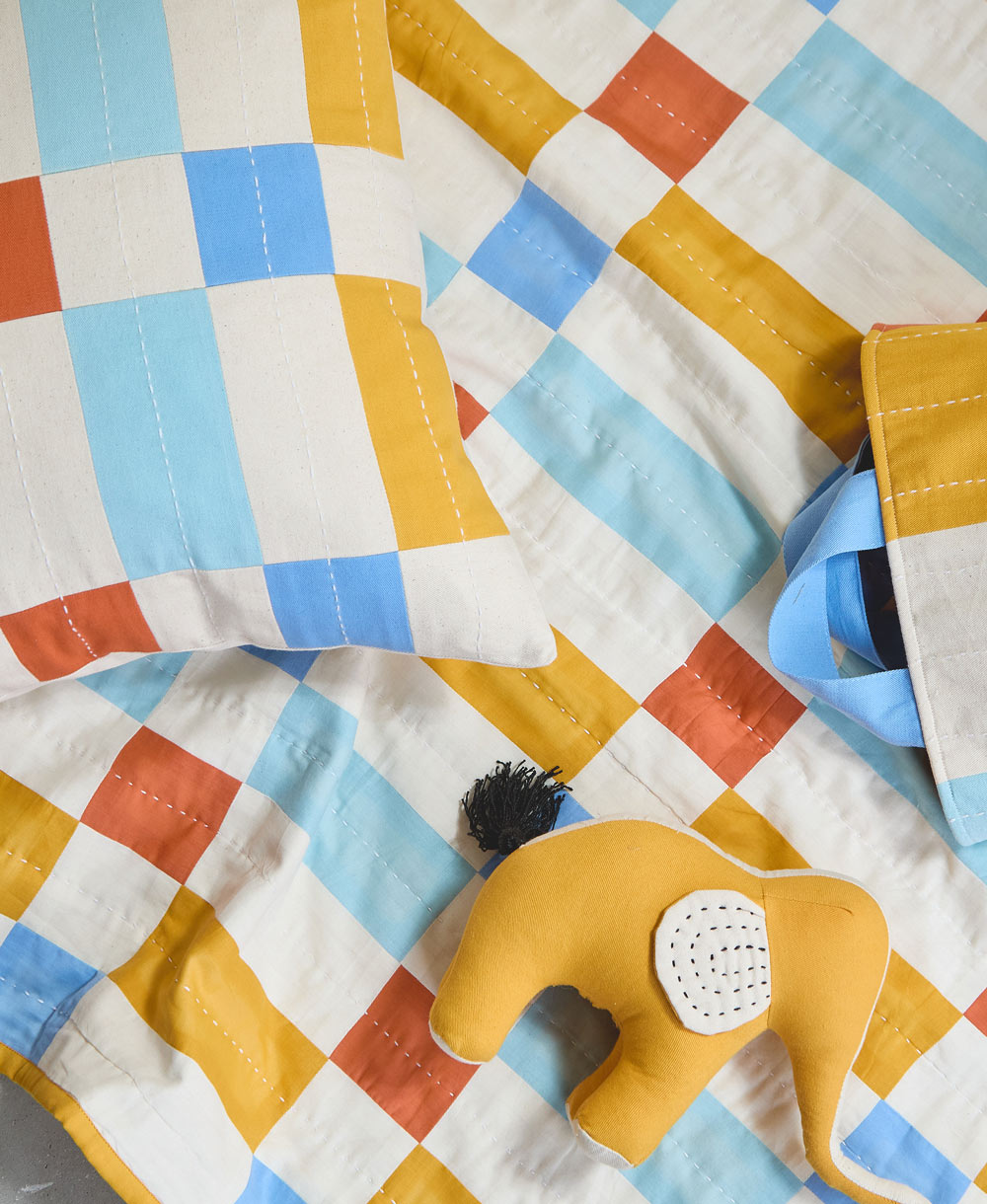First and foremost all of Anchal artisans are healthy and safe! On March 24th, India implemented a nationwide lockdown for 21 days and then extended it for another 35 days in an effort to slow the spread of COVID-19. This strict order came with little warning, but our team acted quickly sending some of the Brooklinen pillows with our project assistants to embroider from home. Movement was limited to only some markets and all other industries were completely closed. Anchal’s workshop space was shut down for the duration of the 56-day lockdown, plus an additional 7 days for cleaning and setting-up new safety protocols.
During the lockdown, we were in constant communication with our NGO partners and Project Director, strategizing how we could best support our community of artisans during the lockdown. Over the course of the lockdown, all of our salaried staff and 160 artisans were paid their salaries and per-piece rates. This support allowed the women to purchase basic human needs like groceries. Our Project Director, Shefali, shared this about the past 6 months,
“Majority of Anchal’s artisans were the ONLY earners in their families during lockdown. No one else was paying and husbands had no money coming in. The gratitude was immense!”
Similarly to conditions we were all facing during early quarantine, artisans were all staying healthy, but were missing their normal routines. Project Assistant, Shama, shared, “My biggest concern is when will this be over and if Anchal will open back up at all. I am also really missing my friends at the Anchal centre.” Women connected on WhatsApp and phone calls, while others passed the time making crafts at home. “I am learning to use a mobile phone from my daughters so I can keep in touch,” Shakuntela shared.
Once regulations were lifted, our team took immediate action to reassess safety precautions and strategize how to complete the Brooklinen pieces, our largest order to date. Initially, the staff of 17 started back to work on staggered shifts with new sanitation methods, temperature checks, PPE, and social distancing. Individual artisans came to the workshop to pick up pieces for themselves and others nearby, allowing more artisans to work from home. “All of the artisans were extremely relieved and excited when we started distributing work again. Many worried Anchal work would not return,” Shefali said.
In July, the team relocated to a larger workshop space. This big move came after years of searching for a larger space for our growing team. As a result, greater social distancing could be achieved in addition to the storage of bulk fabric.
The challenges over the past few months have been many and difficult, not being able to source any vintage saris is just one. However, we are incredibly grateful and proud of our team in Ajmer. Their continued resilience is inspiring to us all. The safety and health of our team is our utmost priority and we will continue to adapt as necessary to continue to provide the infrastructure for women’s empowerment.



